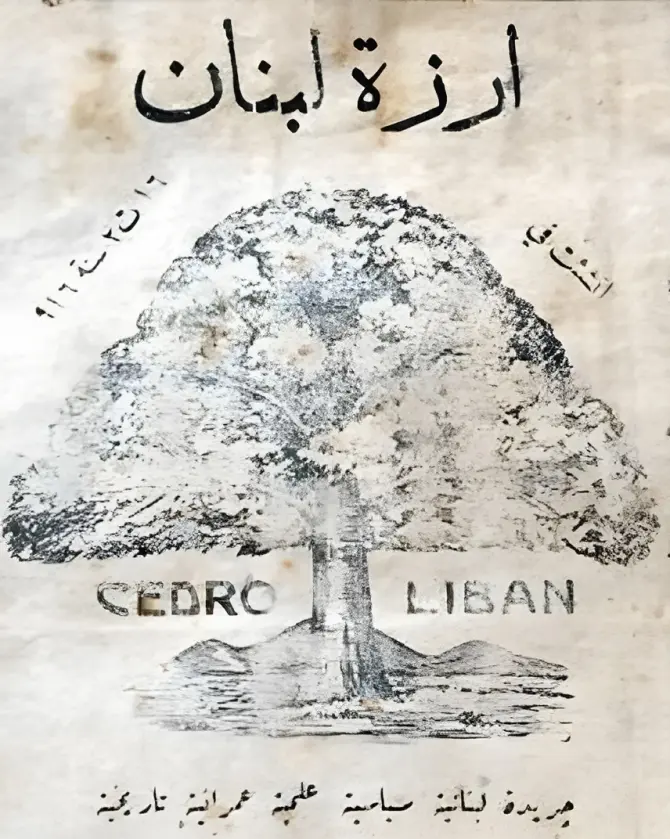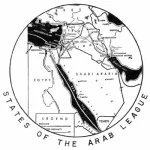This website, Arzitlebnen.com, was created and first published on December 1, 2023, pursuant to license number 895 of the Lebanese Ministry of Information, dated October 15, 1972, when the original license was transferred from Khalil Ayoub Hitti to Samir Youssef Hitti. It was subsequently transferred from Samir Youssef Hitti to Youssef Samir Hitti on May 07, 2005.
The objectives of this site are to preserve the legacy of the Arabic-language Arzit Lebnen newspaper (founded in 1916) and continue its publication in electronic form. The newspaper accompanied Lebanese history through much of the 20th century. When Lebanon emerged from 402 years (1516-1918) of Ottoman Turkish occupation, it fell under the rule of the French Mandate, which the League of Nations tasked to assist Lebanon in creating its institutions and becoming an independent state. As it acquired full independence (1943) and the French withdrew (1946) in the aftermath of World War II, Lebanon initially emerged as a prosperous, successful nation. But it had shaky foundations and was soon beset by centrifugal forces that gradually fragmented what was a united country into its constituent and often hostile communities.
Through the opinions, relevant news, and archival material it presents on its pages, Arzit Lebnen hopes to lead readers to question the apparent dissonance between the small size of Lebanon, its glorious ancient history, and its significant human potential on one hand, and its fall from grace and ongoing miseries over the past few decades on the other hand. Oftentimes, one learns more from the “small history” of lesser-known individuals and events than from the large headlines glorifying the “great” men of history.
My grandfather’s generation, born in the 1880s, was in its twenties and thirties when WWI broke out, just as my generation was in the 1970s when the Lebanese-Palestinian War broke out. How differently did these two generations deal and handle the upheavals of their times?
Arzit Lebnen was founded in November 1916 in Rio de Janeiro by my paternal grandfather Youssef Ayoub Hitti, and his comrade-in-arms Wadih Abboud. Its pages tell much of the state of mind and political thinking of Lebanese exiles who still didn’t know what kind of Lebanon would emerge after WWI. The Lebanese were not the only ones trying to find their identity and assert it after the collapse of the Ottoman Empire. Nationalisms of all kinds were being imagined: Pan-Turkism, Pan-Islamism, Arabism, Syrianism, Phoenicianism, and so on and so forth. At the very least, the Lebanese had a stronger case than others since they had shrugged off Ottoman Turkish rule early on (1840s-1860s), around the same time as Greece and Egypt, among other Turkish-occupied nations.
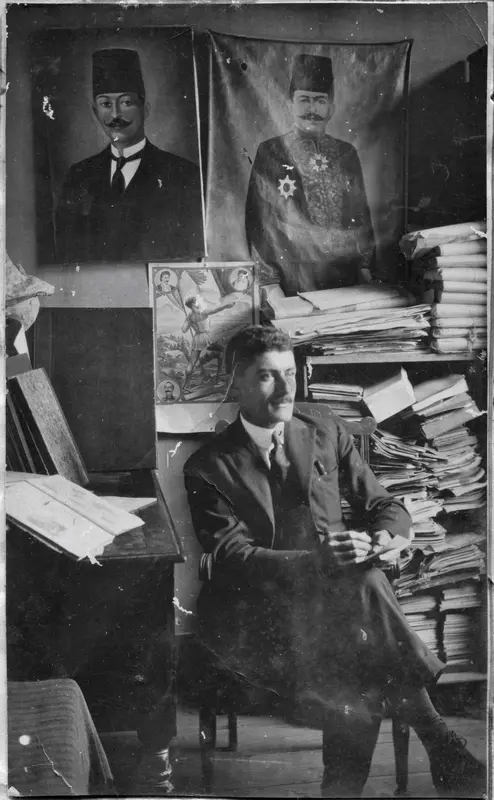
In Rio, Youssef and Wadih mobilized and dispatched a military contingent of expatriate Lebanese, known as the “Lebanese Snipers Company” to fight alongside the allies in the Lebanese city of Tyre. The Company would later become one of the founding elements of the future Lebanese army. Youssef also published in Rio several books, including, among others “Hafif Al-Arz” (The Murmur of the Cedars) and “Al-Jihad Al-Watani” (Patriotic Struggle), in which he lays down his call for an independent Lebanon based on historical and geographic criteria.
As World War I came to an end in 1918, the French took control of Lebanon under a mandate from the League of Nations (the precursor of the United Nations). In 1922, Youssef decided to move back to Lebanon with his wife, Barbara Mansour Ghrayyeb, and their six children. Soon after their return, Barbara died of ill health, and Youssef remarried, taking Zahia Wardan Rahmeh as his wife, who will give him another six children. For the next two decades, Youssef continued publishing Arzit Lebnen from his office in downtown Beirut.
Youssef was a patriot: He simply loved his country. He was not a nationalist whose love of country was tinged with hostility to other peoples or countries. Despite initially welcoming the French as the mandatory authorities, he gradually found himself at odds with their policies as the years passed and suspicions grew about their intentions. Lebanon was never a French colony, and Youssef knew that the French would have to leave sooner rather than later.
In one of his Arzit Lebnen editorials, he criticized the Lebanese for welcoming French General and High Commissioner Gouraud as “Our Commander Prince”, just as they did before him with Ottoman Turkish ruler Jamal Pasha and Arab King Faisal. He once headlined Arzit Lebnen with “اربطوا الكلب كي لا ينبح” (“Tie up the dog so it stops barking”, which could also be read as “Tie up the dog Kayla is barking”; Kayla being the name of a French official). He saw in the Lebanese tendency to be subservient to outside powers a demeaning of national dignity and argued that the Lebanese had suffered martyrs and victims to achieve their independence and contributed to the victory of the Allies. He asserted that the Lebanese’s sole objective was to secure Lebanon’s independence and self-rule by its own people and none other.
This Arzit Lebnen website will dedicate some of its pages to the “little history” of Yousef Ayoub Hitti and the men of his generation whose Lebanon we have inherited. When Youssef passed away in May of 1945, his brother Khalil took over the newspaper and merged it with his own Lebanese-language Zajal poetry magazine “Al-She’er Al-Qaoumi” (الشعر القومي; National Poetry), transforming a political platform into a literary forum. Arzit Lebnen continued to be published until 1971 when Youssef’s son, Samir, adopted it as the publication of his own school, “La Famille Libanaise” in Ayn Remmaneh. The war years after 1975 took their toll, and Arzit Lebnen ceased to be published.
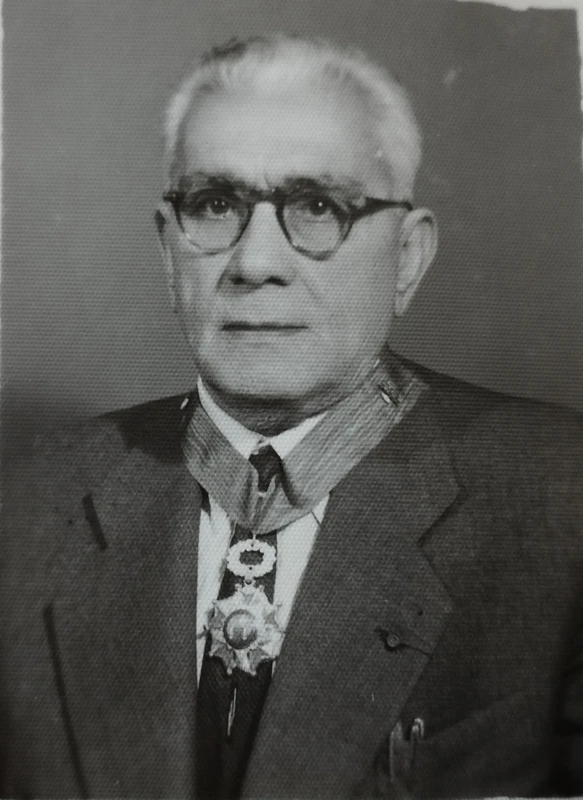
The custodians of this electronic version of Arzit Lebnen hope that it will, in the least, ensure the continuity of the newspaper, but most importantly, preserve the memory it holds within its pages and accompany Lebanon as it struggles through another difficult period of its history.
The paper volume collection of Arzit Lebnen has been donated to the Phoenix Center for Lebanese Studies (PCLS) at the Université Saint-Esprit de Kaslik (USEK) – Holy Spirit University of Kaslik – for preservation and digitalization and avail it within its large archival collection to a diverse community of scholars, researchers and students (https://www.usek.edu.lb/phoenix-en/archival-collections).
Youssef Samir Hitti
Managing Editor
About Youssef Samir Hitti
Youssef Samir Hitti
يوسف سمير حتي
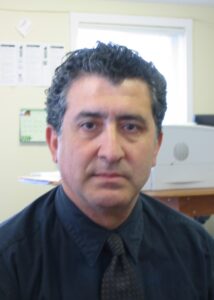
Managing Editor of Arzitlebnen.com
Born in Beirut, Lebanon, he was schooled at Notre-Dame de Jamhour and La Famille Libanaise, followed by undergraduate and graduate studies at the American University of Beirut, doctoral and post-doctoral research in biology in Wisconsin, Rhode Island, and Massachusetts, and corporate research and marketing at Genome Therapeutics Corporation (GTC) and Millipore Corporation in Massachusetts. During his tenure as a senior scientist at GTC, he was fortunate to contribute to the Human Genome Sequencing project.
Dr. Hitti also holds an MBA from Bentley University in Massachusetts and is an accredited Arabic-English translator with the American Translators Association in Washington, DC. He has taught school- and university-level science and biology, as well as Arabic and French languages in both Lebanon and the US, and contributed to authoring scientific publications in cell biology and genomics, as well as commentaries and opinions in US and Lebanese media outlets on topics related to Lebanon and the Middle East, the Syrian occupation of Lebanon and US foreign policy on Lebanon.
Having left Lebanon for the US in 1982, just before the Israeli invasion, Dr. Hitti joined with other Lebanese American expatriates in promoting the welfare of Lebanon at the time when the country was reeling from the Palestinian-Syrian war against it. In 2000, Dr. Hitti founded the Boston-based New England Americans for Lebanon (NEAL) organization, which worked with other Lebanese-American organizations federated under the now-defunct Council of Lebanese-American Organizations (CLAO). During the 1990s, he served briefly as the Media Adviser and then chairman of CLAO. In a rare display of unity, expat organizations in Canada, France, and Australia worked together for the passage of the Syria Accountability and Lebanese Sovereignty Restoration Act (2003) by the US Congress and the United Nations Security Council Resolution 1559 (2004).
Dr. Hitti is currently retired and alternates his residence between Lebanon and the US. He recently undertook to inventory the family’s collection of newspapers left by his grandfathers, Youssef and Khalil Ayoub Hitti, which was the impetus behind starting this website.

